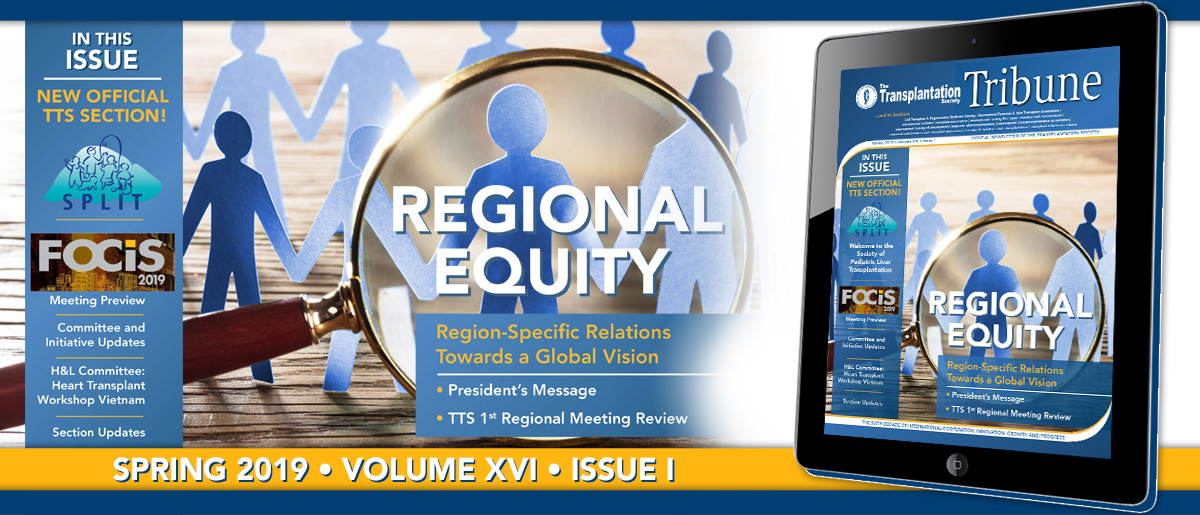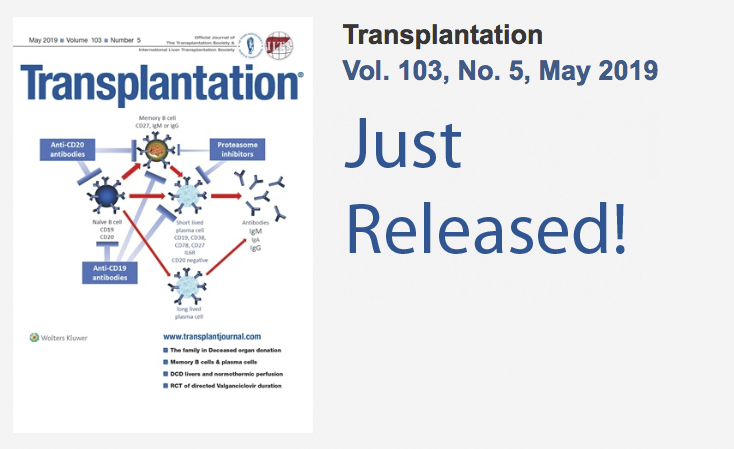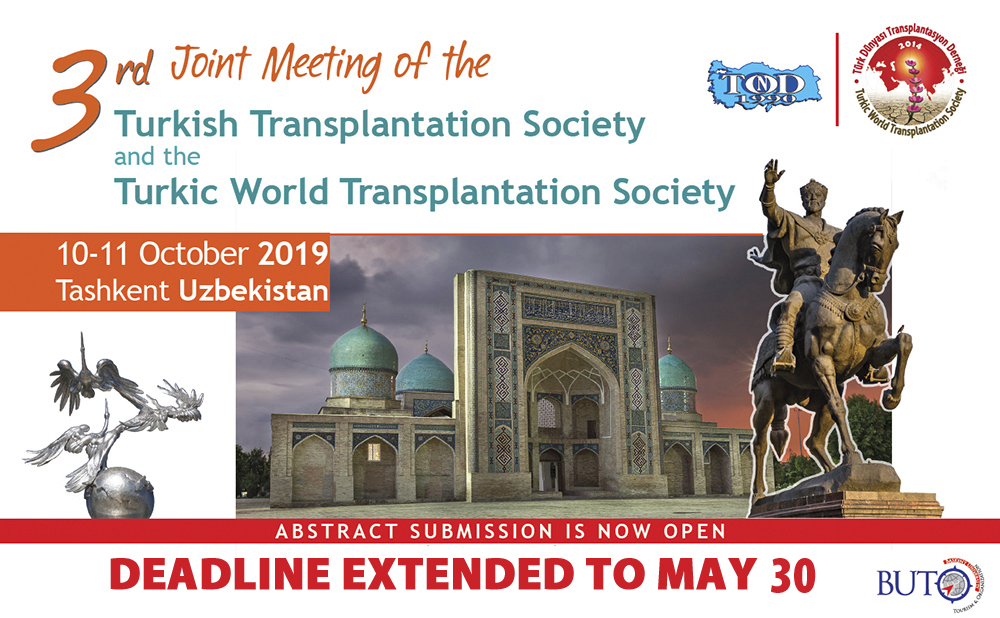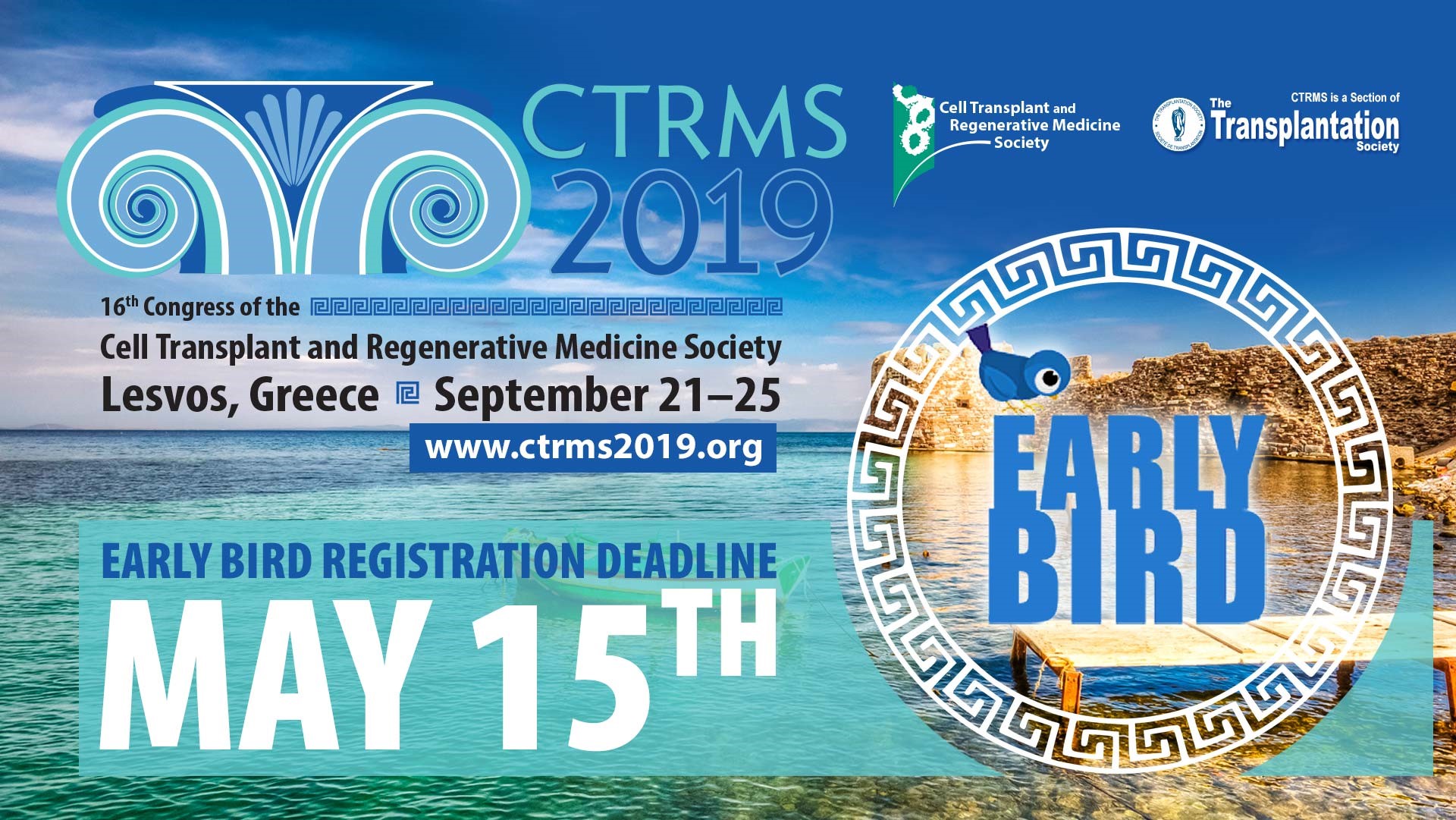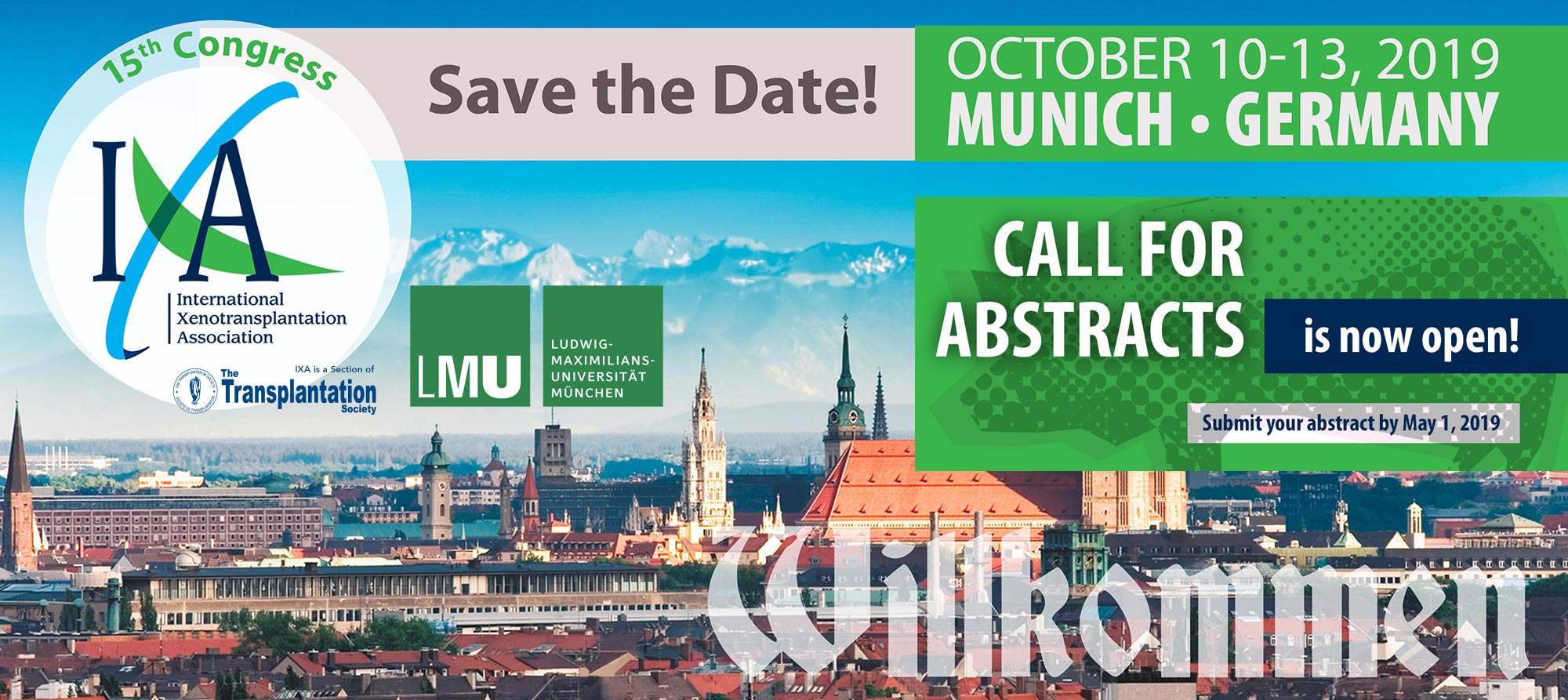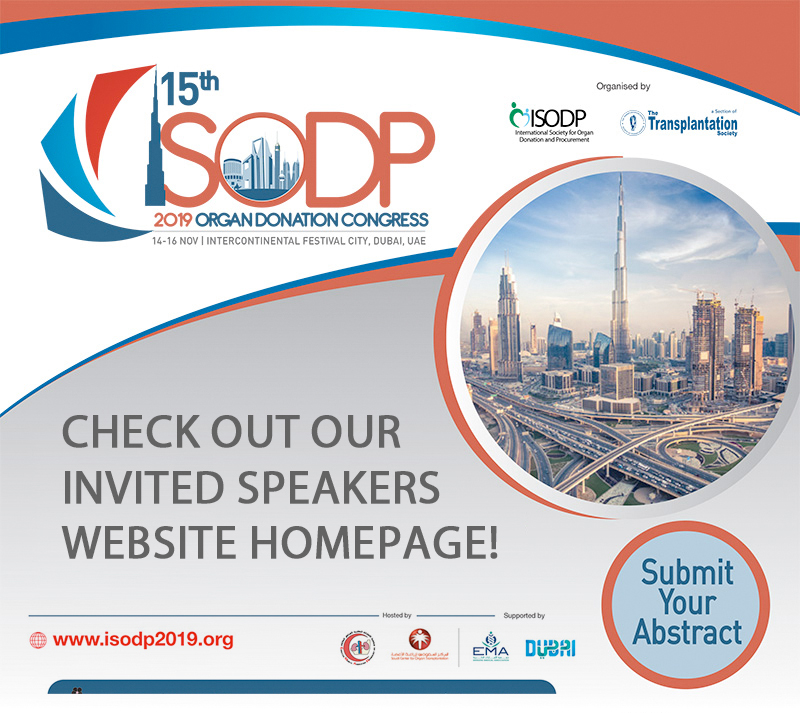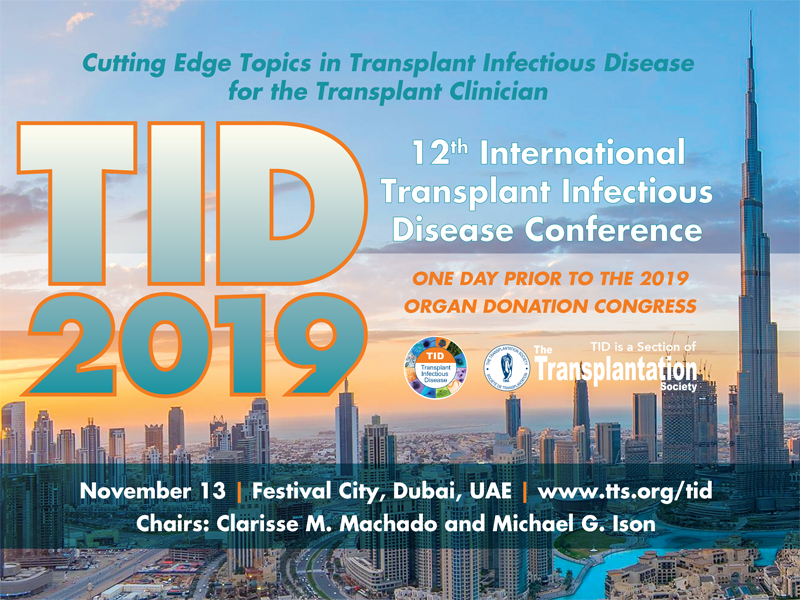
OUR QUARTERLY NEWSLETTER, THE TRIBUNE, JUST RELEASED!
SPRING 2019 ISSUE
JUST RELEASED - TRANSPLANTATION - MAY ISSUE
This issue includes an RCT in CMV prophylaxis for Lung Transplantation. There is much on the HOPE of organ perfusion systems both in the lab and the clinic. The theme of extracting new ideas from ever larger data sets can be seen in a number of papers. Underpinning all that we do - donors and their families - are addressed in different ways in several papers.
CLICK HERE TO ACCESS THIS ISSUE
TTS MEMBERS - CLICK HERE TO SIGN-IN FOR OPEN ACCESS THROUGH TTS.ORG
Just Released - Transplantation Direct - May Issue
The May issue of Transplantation Direct covers a wide variety of topics in transplantation medicine. In kidney transplantation, HLA class II DSA related outcomes in deceased donors are investigated in American regions, as well as the effects of cold ischemia times in similar patients in the Netherlands. Hypothermic machine perfusion utility is tested for pancake kidney transplantation, and the graft rejection predictive value (meta-analysis) of pre-transplant IFN-g ELISPOT is evaluated in another study. In heart transplantation, empagliflozin to manage diabetes is examined and a case of disseminated intravascular coagulation in an HIV patient is reported and discussed. Liver transplant studies look at outcomes when transplants are performed at inconvenient times (holidays/weekends/nights) and a UK group examines economic impacts on health care services in the years before transplantation. We also offer articles on a pilot trial using bevacizumab to reduce corneal transplant neovascularization, on determining an optimal protocol for recruitment of large atelectatic areas in EVLP (lung transplantation), and on using CXCL12 in alginate microbeads to minimize local foreign body responses to microencapsulated pancreatic islets. We welcome you to visit our Transplantation Direct website for full article details.
MAY 21 - WEBINAR REMINDER

TITLE: MULTIDISCIPLINARY CARE MODEL FOR OPTIMAL MANAGEMENT OF THE NASH LIVER TRANSPLANT WAITLIST CANDIDATE
TUESDAY, MAY 21, 2019 - 4:00 PM EDT (MONTREAL TIME)
Overview:
Dr. Mehal will speak on implementation of multidisciplinary care model - pharmacologic weight loss therapy in advanced liver disease and special considerations for the sarcopenic obese patient.
Dr. Posselt will speak on bariatric surgery: approach and special considerations in advanced liver disease.
CLICK HERE TO SIGNUP VIEWTRANSPLANTATION - HIGHLIGHTED ARTICLE
Dr. Karen Keung, Editorial Fellow, Transplantation
ASSOCIATION BETWEEN DURATION OF DELAYED GRAFT FUNCTION, ACUTE REJECTION, AND ALLOGRAFT OUTCOME AFTER DECEASED DONOR KIDNEY TRANSPLANTATION
Lim WH, Johnson DW, Teixeira-Pinto A, et al.
Transplantation 2019; 103 (2): 412–419
Delayed graft function (DGF) is associated with adverse allograft outcomes, but uncertainties exist as to the association between the threshold duration of DGF, acute rejection and long-term graft loss. In this study, the authors used data from the Australia and New Zealand Dialysis and Transplant (ANZDATA) registry to determine the association between quartiles of DGF duration, acute rejection at 6 months and death-censored graft loss (DCGL). DGF was defined as the need for dialysis within 72 hours of transplantation, whilst the duration of DGF was defined as the number of days that dialysis was required and categorized into quartiles (1-4 days, 5-7 days, 8-13 days, and >=14 days).
Of the 7668 deceased donor transplants performed during the study period, 1497 (19.5%) recipients experienced DGF. The median (IQR) duration of DGF was 7 (9) days, with 25% of recipients with DGF requiring dialysis for at least 14 days. The median (IQR) graft and patient follow-up periods were 4.2 (6.3) years and 4.9 (7.3) years. Compared with DGF duration of 1 to 4 days, the adjusted HR (95% CI) for DCGL for each category of DGF duration in ascending order were 1.10 (0.73-1.67; P = 0.638), 1.45 (1.00-2.11; P = 0.05), and 1.60 (1.10-2.31; P = 0.01) respectively, and were 1.13 (95% confidence interval [CI], 0.83-1.55; P = 0.43), 1.44 (95% CI, 1.08-1.91; P = 0.013), and 1.99 (95% CI, 1.50-2.65; P < 0.001) respectively for acute rejection. The proportion of the effect between DGF duration and DCGL mediated by acute rejection was 8.4%. In conclusion, a direct dose-dependent effect between the duration of DGF and allograft loss was demonstrated. Further research to identify potential modifiable mediators of DGF duration are needed..
CLICK HERE TO VIEW (Open Access)PIG LUNGS LIVE AND BREATHE OUTSIDE THE BODY FOR 36 HOURS IN ORGAN TRANSPLANT BREAKTHROUGH
May 8 - Transplanting any organ is, unsurprisingly, a complicated process, but lungs are particularly vulnerable to damage before being implanted. Now, researchers at Columbia Engineering and Vanderbilt University have developed a way to repair that damage, keeping the lungs of pigs alive outside the body for up to 36 hours and allowing them to bring the organ up to a transplantable quality.
Stem Cell Scientists Clear Another Hurdle in Creating Transplant Arteries
May 10 - Cardiovascular disease is a major cause of death worldwide, and treating it isn't easy. The disease wreaks havoc on patients' blood vessels and can require complex bypass surgery. Scientists at the Morgridge Institute for Research are working toward a dream of creating artery banks -- similar to blood banks common today -- with readily-available material to replace diseased arteries during surgery.
One step closer to in vitro blood production
May 7 - Blood transplantation is currently the treatment of choice for a wide range of medical conditions, including pathologies such as cancer or acute events like severe burns or trauma. Lack of donated blood is a reason for concern, and when it occurs, can represent the difference between life and death for a patient. For this reason, many researchers are focused on achieving blood production, or haematopoiesis, in vitro.
dnDSA and ethnicity linked with thickening of blood vessels after kidney transplant
May 7 - Children who developed anti-human leukocyte antibodies against their donor kidney, known as de novo donor-specific antibodies (dnDSA), after kidney transplant were more likely to experience carotid intima-media thickening (CIMT) than those without these antibodies.
Study Describes Long-Term Toll of Pediatric Liver Transplants
May 13 - Deficits in cognitive functioning and health-related quality of life in children who have undergone liver transplantation persist into adolescence, according to a 10-year longitudinal study.
UPCOMING MEETINGS AND ANNOUNCEMENTS
ABSTRACT SUBMISSION DEADLINE EXTENDED - MAY 31
The 3rd Joint Meeting of the Turkish Transplantation Society and the Turkic World Transplantation Society will be held in Tashkent, Uzbekistan on October 10-11, 2019. The Scientific and Local Organizing Committees, comprised of international transplantation leaders, have developed a program that reflects current problems and represents a collection of scientific, educational, and practical information. The meeting will be an exciting opportunity for transplant professionals to share their expertise as well as their concerns regarding the development of the field in their own countries. Please visit the website http://tond-tdtd2019.com/en/ for full details.
CTRMS 2019 – LESVOS - GREECE
A few days grace ....
We will close early bird registration and abstract submission at midnight monday, May 20.
EARLY BIRD REGISTRATION DEADLINE - May 15
LATE-BREAKING AND POSTER ABSTRACT SUBMISSIONS ARE NOW BEING ACCEPTED UNTIL MAY 15!
IXA 2019 AWARDS DUE MAY 27
LATE BREAKING ABSTRACT SUBMISSION OPENS MAY 20 WITTH JUNE 1 DEADLINE
The IXA Scientific Awards are designed to help offset expenses incurred to attend the IXA 2019 Congress and awarded based on the scientific merit of applicants. Please note that recipients must attend the meeting in order to receive the award. If an awardee is selected for a scientific award but does not attend the meeting, the monies of the award will be forfeited. All abstracts must be submitted by May 12, 2019. The IXA 2019 Congress will be held Oct. 10-13, 2019 in Munich, Germany.
IPITA 2019 LYON - FRANCE
Registration is open and preliminary program are both available.
2019 TTS TRANSPLANTATION SCIENCE COMMITTEE NEWS
HOLD THE DATE - NOVEMBER 10-13, 2019
ITS 2019 is set for Nov. 10-13 in Clearwater Beach, Florida. Keynote speakers include Katherine High, President and Head of R&D at Spark Therapeutics, and Ronald Germain, chief of Laboratory of Immune System Biology and Lymphocyte Biology Section at the National Institute of Allergy and Infectious Diseases National Institutes of Health.
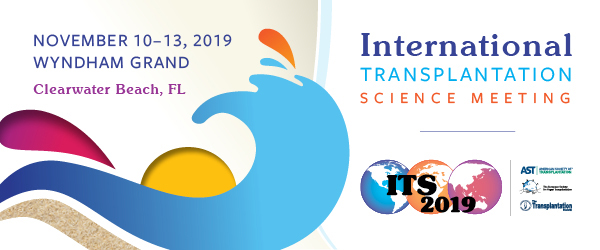
TTS-ISODP AWARDS DUE JUNE 3 - ABSTRACTS DUE MAY 19
The TTS-ISODP Scientific Awards are designed to help offset expenses incurred to attend the ISODP 2019 Congress and awarded based on the scientific merit of applicants. Please note that recipients must attend the meeting in order to receive the award. If an awardee is selected for a scientific award but does not attend the meeting, the monies of the award will be forfeited. All abstracts must be submitted by May 19, 2019. The TTS-ISODP Congress will be held Nov. 14-16, 2019 in Dubai, UAE.
TID2019 - SAVE THE DATES!
PRE-MEETING TO ISODP 2019 - SAME VENUE ...ONE DAY PRIOR!
Contact
Address
The Transplantation Society
International Headquarters
505 Boulevard René-Lévesque Ouest
Suite 1401
Montréal, QC, H2Z 1Y7
Canada

